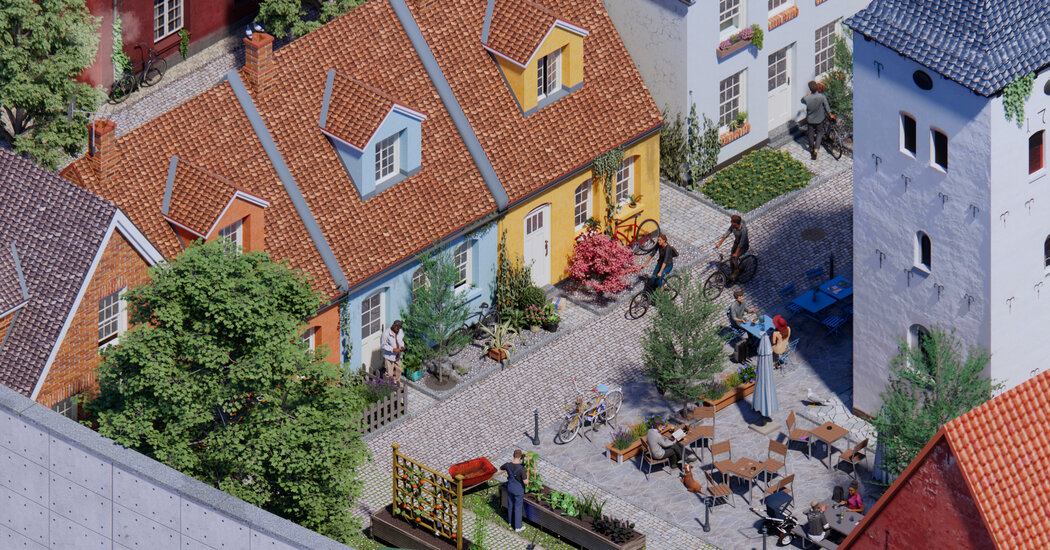These policies made Denmark an object of scorn among many progressives elsewhere. Critics described the Social Democrats as monstrous, racist and reactionary, arguing that they had effectively become a right-wing party on this issue. To Frederiksen and her aides, however, a tough immigration policy is not a violation of progressivism; to the contrary, they see the two as intertwined. As I sat in her bright, modern office, which looks out on centuries-old Copenhagen buildings, she described the issue as the main reason that her party returned to power and has remained in office even as the left has flailed elsewhere.
Leftist politics depend on collective solutions in which voters feel part of a shared community or nation, she explained. Otherwise, they will not accept the high taxes that pay for a strong welfare state. “Being a traditional Social Democratic thinker means you cannot allow everyone who wants to join your society to come,” Frederiksen says. Otherwise, “it’s impossible to have a sustainable society, especially if you are a welfare society, as we are.” High levels of immigration can undermine this cohesion, she says, while imposing burdens on the working class that more affluent voters largely escape, such as strained benefit programs, crowded schools and increased competition for housing and blue-collar jobs. Working-class families know this from experience. Affluent leftists pretend otherwise and then lecture less privileged voters about their supposed intolerance.
“There is a price to pay when too many people enter your society,” Frederiksen told me. “Those who pay the highest price of this, it’s the working class or lower class in the society. It is not — let me be totally direct — it’s not the rich people. It is not those of us with good salaries, good jobs.” She kept coming back to the idea that the Social Democrats did not change their position for tactical reasons; they did so on principle. They believe that high immigration helps cause economic inequality and that progressives should care above all about improving life for the most vulnerable members of their own society. The party’s position on migration “is not an outlier,” she told me. “It is something we do because we actually believe in it.”
As center-left parties elsewhere — including in the United States — try to find their way back to power, they will have to reckon with this dilemma. Immigration is likely to remain a defining political issue in coming years because poverty, political instability, climate change, trafficking networks and social media will continue to push residents of poor countries toward richer ones. Yes, those richer countries, where birthrates have plummeted, will need to admit immigrants to keep their economies functioning smoothly. But the approach that the United States and Western Europe have taken in recent decades has failed.
Immigration has often been chaotic, extralegal and more rapid than voters want. The citizens of Europe, the United States and other countries were never directly asked whether they wanted to admit millions more people, and they probably would have said no if the question had appeared on a ballot. Instead, they revolted after the fact. Trump won in 2016 and 2024 partly by running on a platform of mass deportation. In Europe, the parties of the far right were long the only opponents of immigration, and they have been rewarded with large gains.





